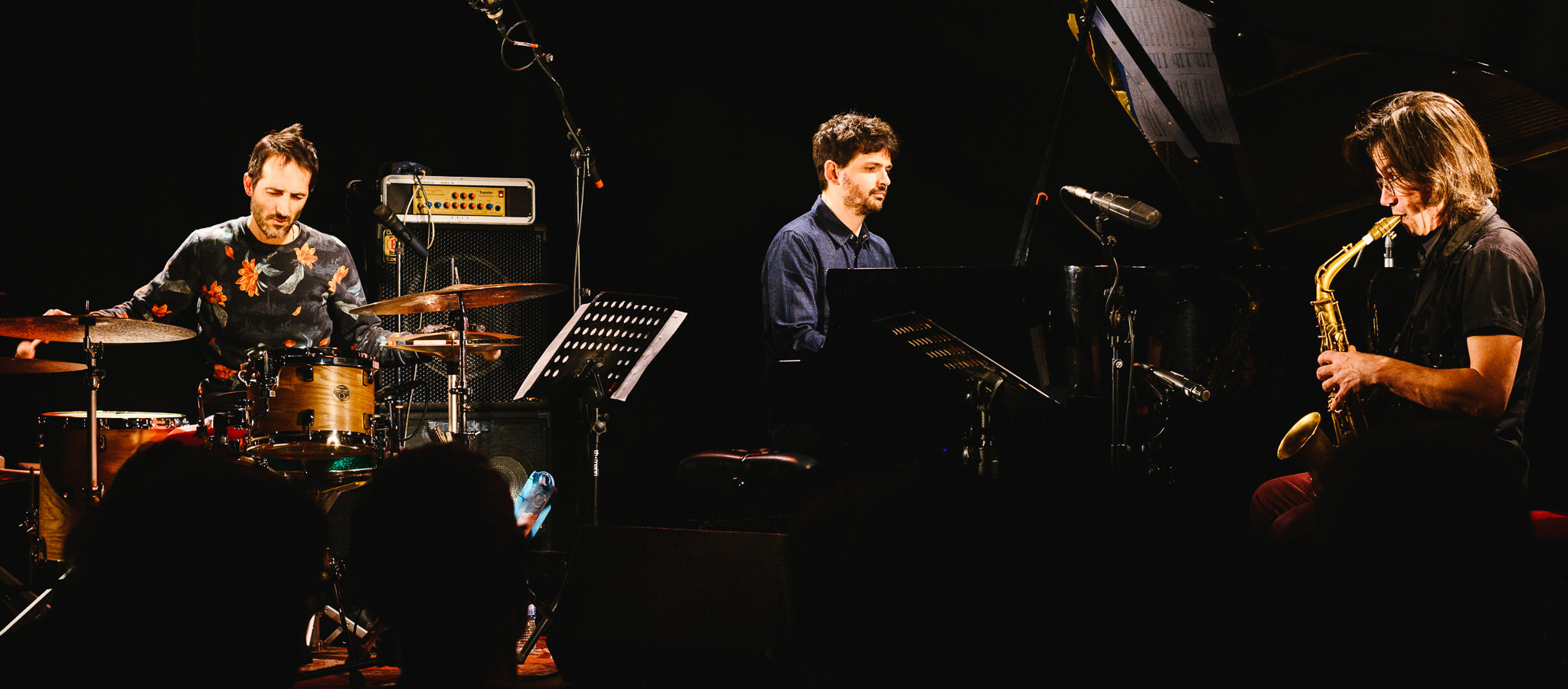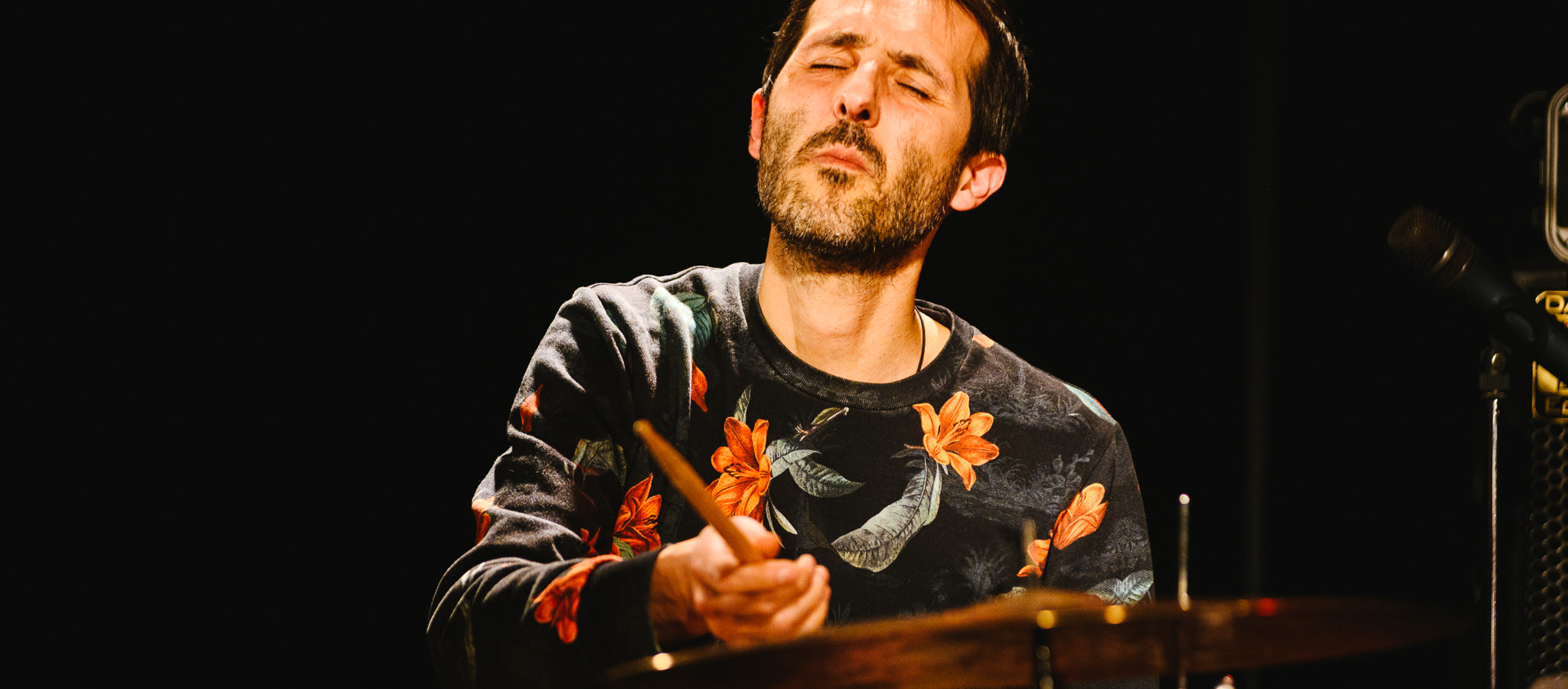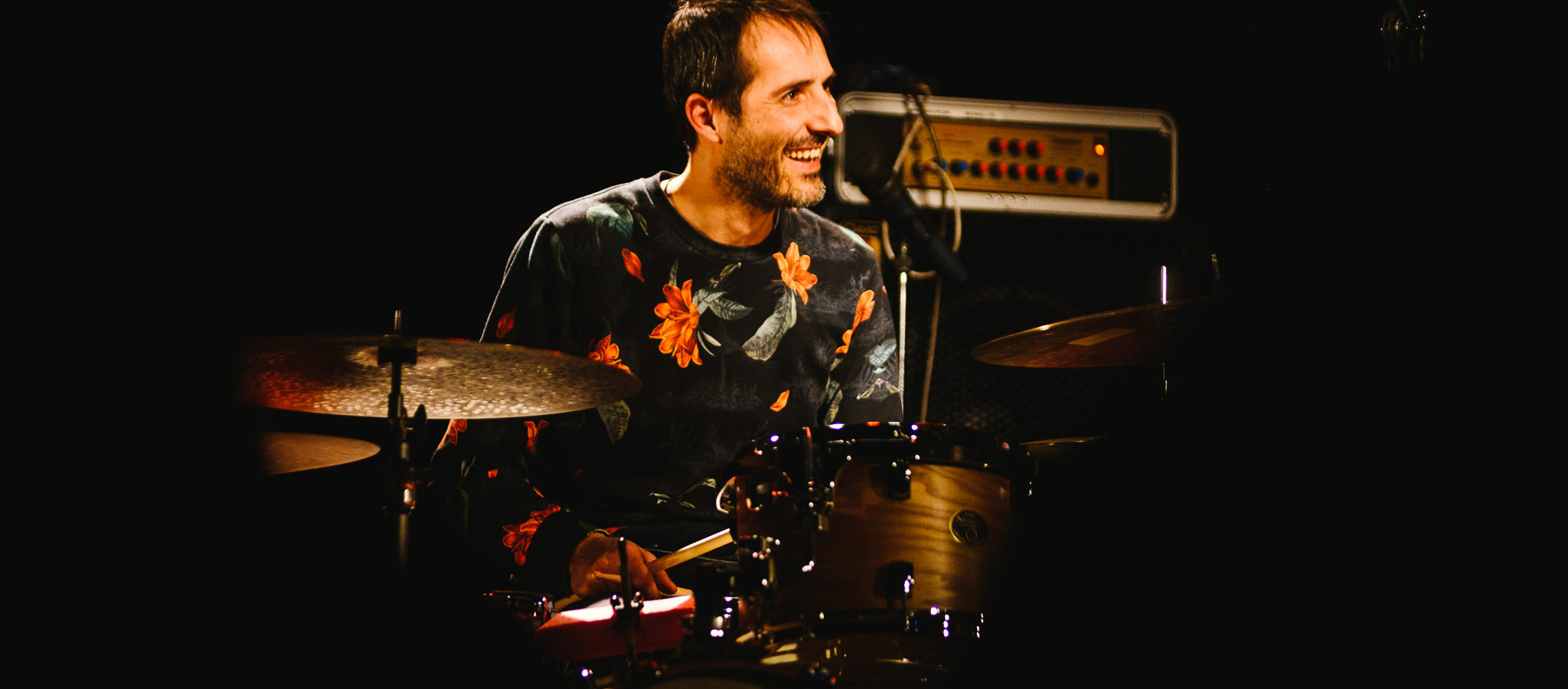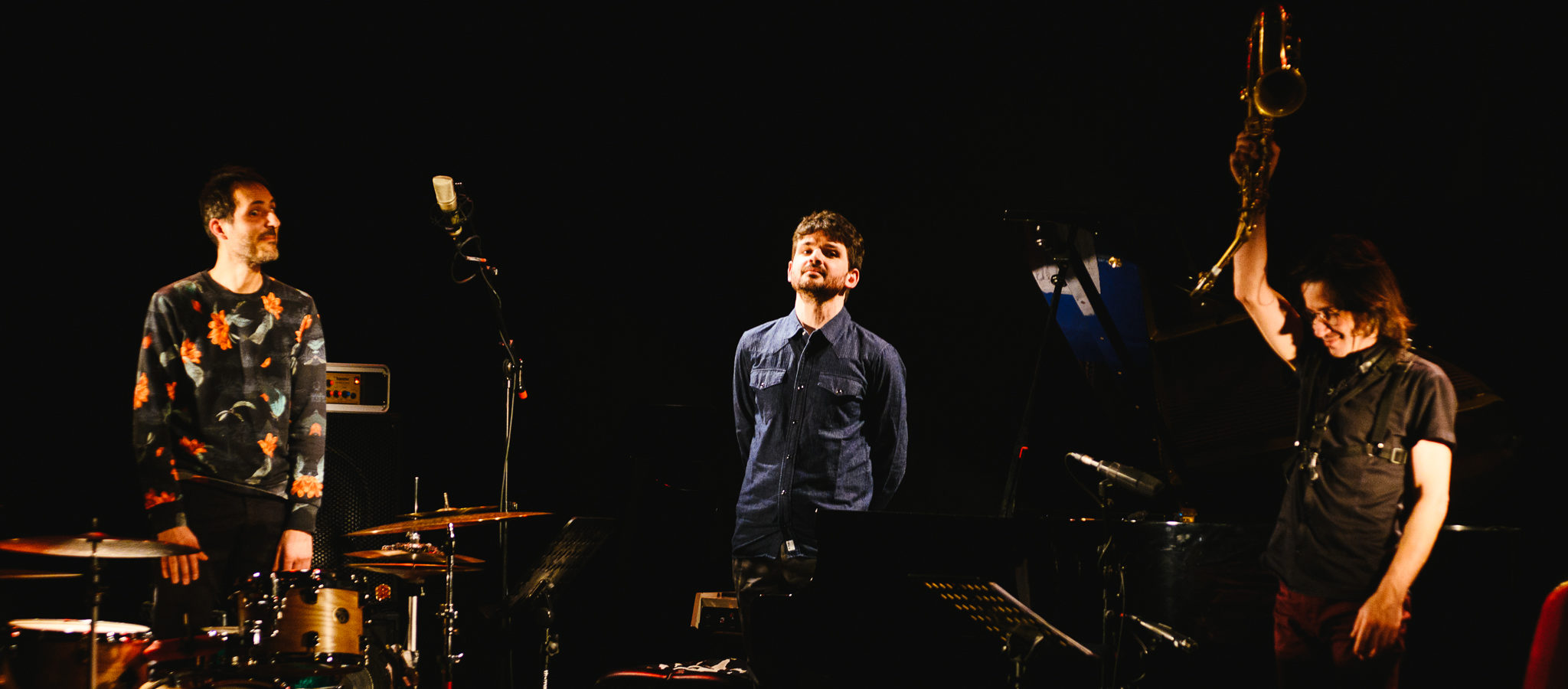On the occasion of the concert of Emmanuel Scarpa's trio Blue Yonder, the drummer confides to us in a few words his feelings on improvisation, his projects and the important place that places occupy in the existence and development of these projects.
"Improvisation has been part of my life for almost 30 years now, so yes I consider it to be a state of fulfilment, a state of being above all, which requires a real presence to what can happen, without judgment if it could be possible ... I also take improvisation as a source of inspiration, as a fertile ground to share, to exchange, moreover when I feel that I'm trampling on my musical life, I sometimes ask other musicians to play during the day, without any objective of project or result, just to improvise and eventually talk about it, what I qualify as a kind of hygiene for the improviser, essential to avoid going around in circles in his small habits, in his small comfort zone."
"I play in three types of groups or projects, those initiated by myself, for which I write the music, those collective, and those directed by another person, in which I bring my contribution to the edifice. I know now that for my balance I need all three (laughs). Blue Yonder belongs to the first category, initiated 5 years ago, with saxophonist Guillaume Orti and pianist Bruno Ruder. I thought about music with a very precise idea of the relationship between the written and the improvised. With musicians like these (who are remarkable not being afraid of words), it allows me to try to realize old fantasies with rules for improvisation that come directly from the written material, and the written material is quite complex but we like that (laughs). It's all about giving fluidity to it all, life, interaction with room for error, so that this music doesn't stay in a laboratory. )"
"I have a special relationship with rooms like the Périscope, and more particularly with the Périscope itself, because I saw it being born, growing up, and I've never left it. Places like Periscope are indispensable because they allow everything that theatres and cultural centres don't allow - I don't spit in the soup because I also play in these halls with great pleasure - I just want to make my point: in a hall like Periscope, if you want to try something quickly enough on the set, it's usually possible, it's not something that you put off for two years, when the idea has evaporated. The Périscope, like the Fraternelle at St Claude and others, are places of life, of crossbreeding, of discussion. I hope that Périscope will keep its underground side... "
 On the occasion of the concert of Emmanuel Scarpa's trio Blue Yonder, the drummer confides to us in a few words his feelings on improvisation, his projects and the important place that places occupy in the existence and development of these projects.
On the occasion of the concert of Emmanuel Scarpa's trio Blue Yonder, the drummer confides to us in a few words his feelings on improvisation, his projects and the important place that places occupy in the existence and development of these projects. "Improvisation has been part of my life for almost 30 years now, so yes I consider it to be a state of fulfilment, a state of being above all, which requires a real presence to what can happen, without judgment if it could be possible ... I also take improvisation as a source of inspiration, as a fertile ground to share, to exchange, moreover when I feel that I'm trampling on my musical life, I sometimes ask other musicians to play during the day, without any objective of project or result, just to improvise and eventually talk about it, what I qualify as a kind of hygiene for the improviser, essential to avoid going around in circles in his small habits, in his small comfort zone."
"Improvisation has been part of my life for almost 30 years now, so yes I consider it to be a state of fulfilment, a state of being above all, which requires a real presence to what can happen, without judgment if it could be possible ... I also take improvisation as a source of inspiration, as a fertile ground to share, to exchange, moreover when I feel that I'm trampling on my musical life, I sometimes ask other musicians to play during the day, without any objective of project or result, just to improvise and eventually talk about it, what I qualify as a kind of hygiene for the improviser, essential to avoid going around in circles in his small habits, in his small comfort zone." "I play in three types of groups or projects, those initiated by myself, for which I write the music, those collective, and those directed by another person, in which I bring my contribution to the edifice. I know now that for my balance I need all three (laughs). Blue Yonder belongs to the first category, initiated 5 years ago, with saxophonist Guillaume Orti and pianist Bruno Ruder. I thought about music with a very precise idea of the relationship between the written and the improvised. With musicians like these (who are remarkable not being afraid of words), it allows me to try to realize old fantasies with rules for improvisation that come directly from the written material, and the written material is quite complex but we like that (laughs). It's all about giving fluidity to it all, life, interaction with room for error, so that this music doesn't stay in a laboratory. )"
"I play in three types of groups or projects, those initiated by myself, for which I write the music, those collective, and those directed by another person, in which I bring my contribution to the edifice. I know now that for my balance I need all three (laughs). Blue Yonder belongs to the first category, initiated 5 years ago, with saxophonist Guillaume Orti and pianist Bruno Ruder. I thought about music with a very precise idea of the relationship between the written and the improvised. With musicians like these (who are remarkable not being afraid of words), it allows me to try to realize old fantasies with rules for improvisation that come directly from the written material, and the written material is quite complex but we like that (laughs). It's all about giving fluidity to it all, life, interaction with room for error, so that this music doesn't stay in a laboratory. )" "I have a special relationship with rooms like the Périscope, and more particularly with the Périscope itself, because I saw it being born, growing up, and I've never left it. Places like Periscope are indispensable because they allow everything that theatres and cultural centres don't allow - I don't spit in the soup because I also play in these halls with great pleasure - I just want to make my point: in a hall like Periscope, if you want to try something quickly enough on the set, it's usually possible, it's not something that you put off for two years, when the idea has evaporated. The Périscope, like the Fraternelle at St Claude and others, are places of life, of crossbreeding, of discussion. I hope that Périscope will keep its underground side... "
"I have a special relationship with rooms like the Périscope, and more particularly with the Périscope itself, because I saw it being born, growing up, and I've never left it. Places like Periscope are indispensable because they allow everything that theatres and cultural centres don't allow - I don't spit in the soup because I also play in these halls with great pleasure - I just want to make my point: in a hall like Periscope, if you want to try something quickly enough on the set, it's usually possible, it's not something that you put off for two years, when the idea has evaporated. The Périscope, like the Fraternelle at St Claude and others, are places of life, of crossbreeding, of discussion. I hope that Périscope will keep its underground side... "